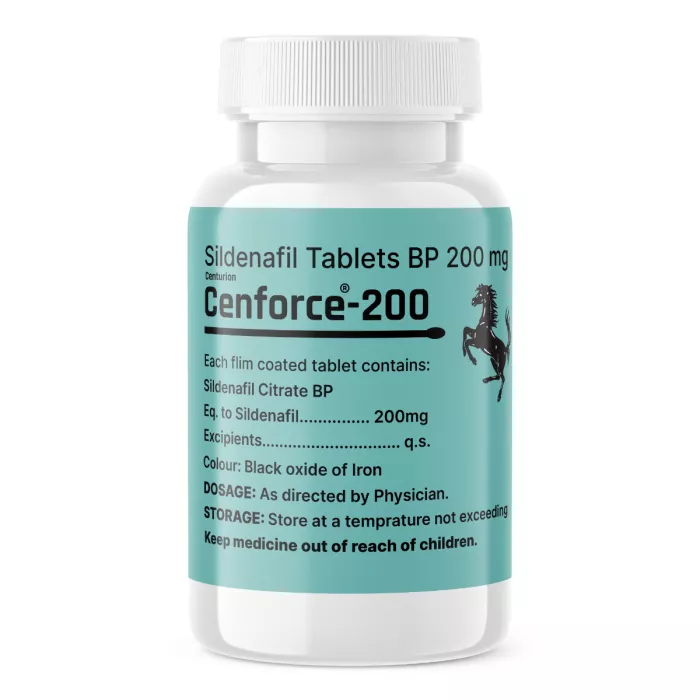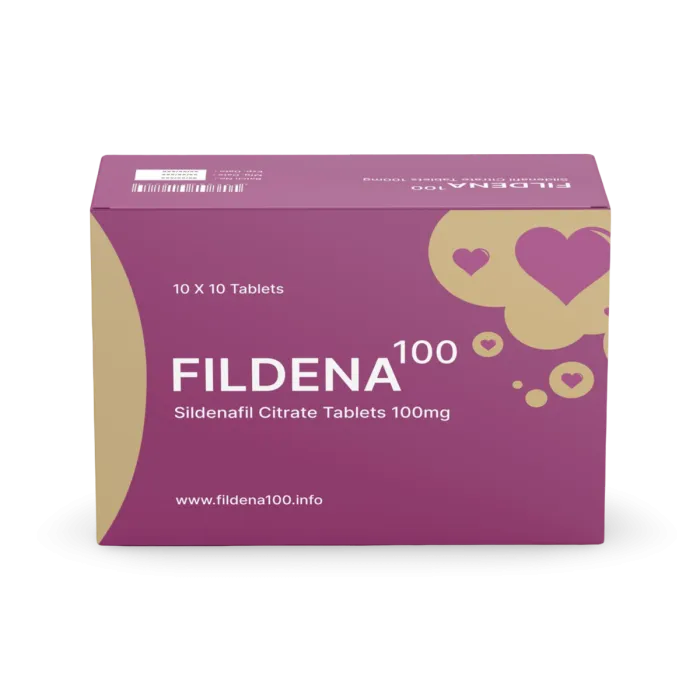Taking medication for health conditions is essential, but some medications can create unexpected problems. Many men don’t realize that certain medications can affect their sexual performance. This side effect can be frustrating and embarrassing, especially when not discussed during medical visits.
Understanding which medications cause these issues helps you make informed decisions about your health. Some medications affect blood flow, hormone levels, or nerve function, all of which can lead to Erectile Dysfunction (ED). The good news is that awareness and open communication with your doctor can help find solutions.
Read on to learn about drugs that cause Erectile Dysfunction or ED and what you can do about it.
How do medications affect sexual function?
Erectile function depends on several body systems working together. Your brain sends or transmits signals through nerves to the blood vessels in the penis. When these signals work properly, blood flows into the penis and creates an erection. Many medications can interfere with this process in different ways.
Some medications reduce blood flow to the penis by affecting blood vessels. Others change hormone levels that are needed for sexual desire and function. Certain medications can interfere with nerve signals that control erections.
The psychological impact also plays a role. When men know their medication might cause sexual dysfunction, Performance Anxiety can make the situation worse. This creates a cycle where both the medication and worry contribute to erectile difficulties.
Save up to 90% on your medicine bills

Cenforce 200 mg

Kamagra Oral Jelly Rx 100 mg

Fildena 100 mg

Vidalista 60 mg
Blood pressure drugs that cause Erectile Dysfunction
Many men are surprised to learn that blood pressure medications, especially older types, can sometimes interfere with sexual performance. These medications may affect the body’s ability to maintain an erection by disrupting blood flow, hormone balance, or nerve signals.
Some High Blood Pressure medicines can impact libido or the quality of sex, which makes Hypertension drugs that cause Erectile Dysfunction a vital concern, particularly for those managing long-term heart health.
Some older blood pressure drugs that cause Erectile Dysfunction include:
- Beta-blockers (e.g., Propranolol, Atenolol, Metoprolol)
- Thiazide diuretics (e.g., Hydrochlorothiazide)
- Central-acting agents (e.g., Methyldopa, Clonidine, Guanfacine)
These medications can lower libido and impair erection quality in some men. Additionally, being aware of the possible side effects may itself cause anxiety, which can worsen erectile difficulties.
However, not all blood pressure medications have this effect. Some are less likely to interfere with sexual function, including:
- Angiotensin-Converting Enzyme inhibitors or ACE inhibitors (e.g., Lisinopril, Enalapril, Captopril)
- Angiotensin Receptor Blockers (ARBs) (e.g., Losartan, Valsartan, Irbesartan)
- Calcium channel blockers (e.g., Amlodipine, Nifedipine, Diltiazem)
Note: Not everyone experiences ED from blood pressure medications, and severity can vary. Always consult your doctor before making any changes, as lifestyle and overall health also play a key role.
Antidepressants and mental health medications
Mental health medications are essential for treating Depression, Anxiety, and mood disorders, but many of them can affect sexual function.
Among them, antidepressants are commonly associated with sexual side effects, including Erectile Dysfunction. These effects occur because many of these medications alter brain chemicals like Serotonin and Norepinephrine, which also influence sexual response.
Types of antidepressants linked to Erectile Dysfunction include:
- Selective Serotonin Reuptake Inhibitors or SSRIs: Paroxetine (Paxil), Sertraline (Zoloft), Fluoxetine (Prozac), and Escitalopram (Lexapro)
- Serotonin-Norepinephrine Reuptake Inhibitors (SNRIs): Venlafaxine (Effexor) and Duloxetine (Cymbalta)
- Tricyclic Antidepressants (TCAs): Amitriptyline and Nortriptyline
- Atypical Antidepressants: Remeron and Trazodone, Bupropion (Wellbutrin)
In addition to antidepressants, some antipsychotic drugs that cause Erectile Dysfunction include:
- Chlorpromazine (Thorazine)
- Haloperidol (Haldol)
- Risperidone (Risperdal)
- Olanzapine (Zyprexa)
These medications affect dopamine pathways, which play a key role in sexual arousal and erectile response.
Other common medications that affect erectile function
In addition to blood pressure and mental health medications, several prescription drugs that can cause ED are used for unrelated conditions but still affect sexual performance.
Prescription drugs that can cause Erectile Dysfunction include:
- Opioid analgesics (e.g., Morphine, Codeine, Oxycodone): These pain medications may suppress Testosterone production over time, especially with long-term use.
- Finasteride (e.g., Propecia, Proscar): Used to treat hair loss or enlarged prostate, it can cause Erectile Dysfunction in a small percentage of users.
- Anti-seizure medications: Certain drugs for Epilepsy and nerve pain may interfere with sexual function.
- Heart medications and muscle relaxants: Some of these can slow nerve responses and reduce arousal.
Even over-the-counter or OTC drugs that cause Erectile Dysfunction are more common than people think. These include:
- Antihistamines (e.g., Diphenhydramine/Benadryl): Often used for allergies, these can reduce libido and impair arousal.
- H2 blockers (e.g., Cimetidine/Tagamet): Used for heartburn, but known to interfere with Testosterone levels in some men.
If you’re experiencing changes in sexual performance after starting a new medication, whether prescription or over-the-counter, it’s essential to talk to your doctor about possible alternatives or adjustments.
What to do if medications affect your sexual function?
If you suspect that your medications are interfering with your ability to get or maintain an erection, here are some critical steps to take:
- Talk to your doctor: Openly discuss sexual side effects. Your doctor can help pinpoint whether a medication is the cause.
- Ask about alternatives: Your provider may adjust your dose or suggest a different medication with fewer sexual side effects.
- Change the timing: Taking your medication at a different time of day may reduce its impact on sexual function.
- Consider ED treatments: Sometimes, your doctor may recommend Erectile Dysfunction treatments like Sildenafil or Tadalafil to restore function alongside necessary prescriptions.
- Be patient with recovery: It can take a few days to several weeks for erections to improve after adjusting a medication. Stay consistent and allow your body to respond.
- Keep communication open: Regularly check in with your healthcare provider to track progress and fine-tune your treatment.
Conclusion
Understanding the drugs that cause Erectile Dysfunction is crucial for maintaining both your health and quality of life. Blood pressure medications, antidepressants, and many other common prescriptions can affect sexual function.
However, this doesn’t mean you have to choose between treating your health conditions and maintaining sexual wellness. Open communication with a healthcare expert is key to finding solutions. Whether through medication adjustments, alternative treatments, or lifestyle changes, options exist to help manage both your health conditions and sexual function.
Remember that drugs that cause Erectile Dysfunction affect many men, and practical solutions are available when you work with your medical team.

FAQs
How long does it take for erectile function to return after stopping medication?
Recovery time varies by individual and medication type. Some men notice improvement within days, while others may take several weeks. Your doctor or healthcare expert can provide specific guidance based on your situation and medications.
Do withdrawal symptoms from psychiatric drugs affect sexual function?
Yes, stopping psychiatric medications abruptly can lead to withdrawal symptoms, including temporary changes in sexual function. These may include heightened sensitivity, delayed ejaculation, or emotional swings that affect libido. Tapering off slowly under supervision helps minimise such effects.
Can recreational drugs cause permanent Erectile Dysfunction?
Yes, recreational drugs like cocaine, marijuana, and alcohol can cause both temporary and permanent Erectile Dysfunction. Cocaine damages blood vessels, while chronic alcohol use affects testosterone production and liver function permanently.
Can recreational drugs cause permanent Erectile Dysfunction?
Yes, chemotherapy drugs can damage nerves and blood vessels involved in erections and lower Testosterone levels. Erectile Dysfunction may occur during or after cancer treatment. Doctors often recommend early discussion about fertility and sexual health options before starting chemotherapy.
Do sleep medications affect morning erections?
Yes, sleep medications like zolpidem and benzodiazepines can reduce Rapid Eye Movement or REM sleep and suppress natural testosterone surges that occur during sleep, leading to fewer morning erections and overall erectile difficulties.
Are there natural supplements that counter medication-induced ED?
Yes, some natural supplements, such as L-arginine, Panax ginseng, and Ashwagandha, may help improve blood flow and libido. However, they can interact with prescriptions. Always consult a healthcare specialist before using supplements to manage medication-related Erectile Dysfunction.
Cheap Medicine Shop only refers to credible, authoritative sources for our content. If you’re curious about how we ensure the integrity of our content, we encourage you to read our Content Information Policy.














